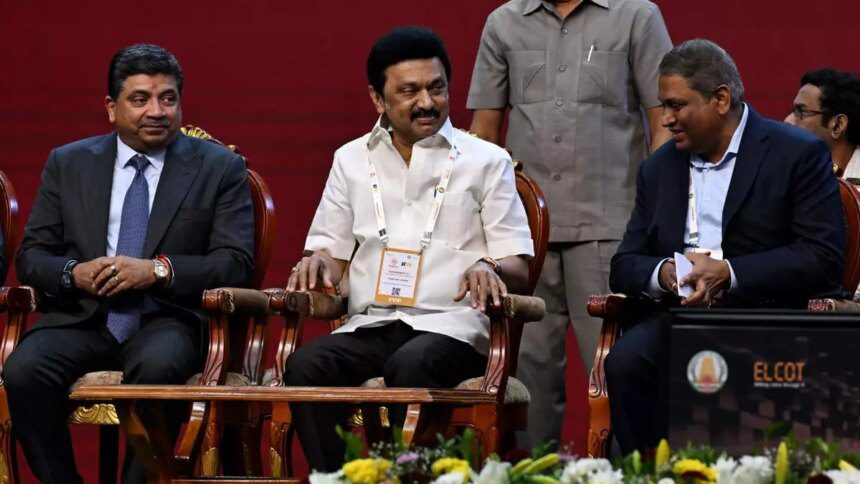The Tamil Nadu government is set to develop a 2 million sq ft IT infrastructure in Coimbatore through a Public-Private Partnership, focusing on Artificial Intelligence (AI) as a key sector, announced Chief Minister MK Stalin during the opening address of the two-day Umagine TN 2025 IT Summit on Thursday.
Tamil Nadu has consistently been a leader in promoting the IT industry. The state administration is implementing initiatives aimed at harnessing emerging technologies such as AI, blockchain, IoT, and electric vehicles. Since the current government took office, there has been a notable rise in the number of Global Capability Centers. However, CM Stalin emphasized that despite these efforts, more progress is necessary. “Tamil Nadu should continue advancing. We consistently strive to be a step ahead in fostering business growth and entrepreneurship,” he stated.
He stressed that development shouldn’t be limited to the capital city; true progress must be inclusive and widespread. Thus, the Tamil Nadu government is focused on creating job opportunities for the youth in not just Chennai but other growing urban areas as well.
Reflecting on the past, CM Stalin pointed out that former Chief Minister M. Karunanidhi initiated the Tidel Park in Chennai in 1999. Now, the government is progressing to the next phase by establishing technology parks through ELCOT in tier-II and tier-III cities such as Coimbatore, Salem, Madurai, Trichy, Hosur, Tirunelveli, Vellore, Villupuram, and Thoothukudi.
In today’s digital era, the Chief Minister noted that digital services must be user-friendly and accessible to everyone, while also ensuring robust security to combat digital crimes. He emphasized that technologies should be developed and reinforced to address these challenges.
State IT Minister Palanivel Thiaga Rajan remarked that Chief Minister Stalin aspires for Tamil Nadu to become the premier source of human resources globally. He highlighted the success of the government’s Naan Mudhalvan initiative, which has significantly benefited countless students.
Rajan proudly pointed out that Tamil Nadu is unmatched in producing a vast number of professionals in the technology sector, contributing about 20% of India’s engineering and technology workforce. Furthermore, Tamil Nadu leads the nation in patent filings, with approximately 75% of patents in deep tech and innovation registered in Chennai.
“Unlike other prominent technology hubs such as Mumbai, Bengaluru, Pune, Delhi, or Gurgaon, we take pride in the fact that over 85% of technology professionals working in Tamil Nadu are of Tamil origin. This indicates our capability to generate substantial human capital that supports our own industries. A considerable section of the technology talent in cities like Bengaluru, Hyderabad, NCR, and Pune also has Tamil roots,” Rajan stated.
Vijayakumar, CEO of HCL Tech, noted that Tamil Nadu serves as a crucial location for the company, highlighting their extensive operations in Chennai and Madurai. Out of their global workforce of 220,000, around 160,000 are in India, with over a third based in Tamil Nadu, many of whom were born and educated in the state.
“I believe Tamil Nadu has accomplished this admirably. It is a multifaceted hub for various industries, a vital center for IT, a manufacturing base, and offers a strong foundation for both IT and financial services in addition to a thriving agricultural and horticultural sector,” he concluded.










